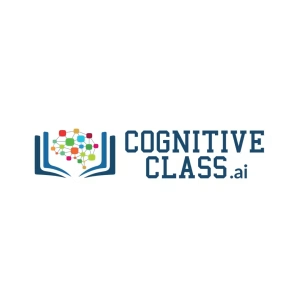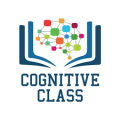- All
- Favorite
- Popular
- Most rated

Persisting data with MongoDB
Learn how to persist data in MongoDB with Java microservices. Master the integration of MongoDB with your Java applications to store and manage unstructured data, ensuring efficient data retrieval and storage in a NoSQL database.

Implement consumer-driven contract testing for Java microservices using the Pact framework
Master consumer-driven contract testing with the Pact framework. Learn how to test microservices in isolation, ensuring that they fulfill contracts between producers and consumers, leading to reliable and scalable integrations in distributed systems.

Deploying microservices to Kubernetes
Learn how to deploy microservices to Kubernetes. Discover best practices for containerizing, scaling, and managing microservices using Kubernetes orchestration, and take advantage of Kubernetes features for efficient deployment and maintenance in production.

Building a simple RESTful Java microservice using JAX-RS and
Explore the process of building a simple RESTful Java microservice using JAX-RS. Understand how to expose HTTP endpoints, handle requests, and return responses in a standardized way, making your Java applications accessible through REST APIs.

Externalizing environment-specific configurations for CI/CD
Master the art of externalizing environment-specific configurations for CI/CD. Learn how to manage environment variables, configuration files, and deploy code seamlessly across different environments using CI/CD pipelines, ensuring flexibility and scalability.

Creating reactive Java microservices
Dive into the creation of reactive Java microservices. Learn how to build non-blocking, event-driven microservices with reactive programming principles using Java frameworks like Reactor and Vert.x to optimize performance in modern cloud-native applications.

Jaeger for distributed tracing with MicroProfile Telemetry
Learn how to use Jaeger for distributed tracing in microservices with MicroProfile Telemetry. Understand how to track and visualize microservice interactions, identify performance bottlenecks, and ensure seamless operation of complex systems with distributed tracing.

A Technical Deep Dive on Liberty
Take a deep dive into Open Liberty with this technical course. Explore advanced topics, configurations, and best practices to fully leverage Open Liberty's features for building and deploying Java microservices in cloud-native environments.

Essentials for Cloud-Native Java Application Development
Learn the essentials for developing cloud-native Java applications. This course covers the key principles, tools, and techniques for building and deploying Java applications optimized for cloud environments, ensuring scalability, resilience, and performance.

Producing and Consuming Messages in Java Microservices
Master message-driven communication in Java microservices. Learn how to produce and consume messages between microservices using Java Message Service (JMS) and other messaging frameworks, enabling asynchronous communication for scalable, distributed systems.

Testing microservices with the Arquillian managed container
Master microservices testing with Arquillian. Learn how to leverage Arquillian's managed container for testing Java EE microservices, ensuring reliability and correctness in a controlled test environment before deployment.

Bidirectional communication between services using Jakarta
Learn how to implement bidirectional communication between microservices using Jakarta. Explore how to create real-time, interactive systems where services can send and receive messages, improving the efficiency of service interactions in cloud-native architectures.

Validating constraints for JavaBeans in Java microservices
Discover how to validate constraints for JavaBeans in Java microservices. Learn how to use annotations and the Java Bean Validation API to ensure the correctness of data and maintain consistency within microservices.

Implementing a GraphQL microservice using MicroProfile API to query and update data from multiple services
Learn how to implement a GraphQL microservice using MicroProfile API. Discover how to enable efficient querying and updating of data from multiple microservices with GraphQL, providing a flexible and scalable solution for handling complex data interactions.

Checking the health of Java microservices by using Eclipse MicroProfile Health Check
Master how to check the health of Java microservices using Eclipse MicroProfile Health Check. Learn to monitor microservice status and availability, ensuring that services are running smoothly in production environments.

Enabling Cross-Origin Resource Sharing (CORS) in a RESTful Java microservice
Understand how to enable Cross-Origin Resource Sharing (CORS) in RESTful Java microservices. Learn to configure and manage CORS to allow cross-origin requests from browsers and ensure secure communication between microservices and web frontends.

Building a hypermedia-driven RESTful Java microservice using Hypermedia as the Engine of Application State (HATEOAS)
Learn how to build hypermedia-driven RESTful Java microservices using HATEOAS (Hypermedia as the Engine of Application State). Explore how to enhance RESTful services by including hypermedia links that guide the client to future actions, improving flexibility and scalability.

Consuming a RESTful Java web service with AngularJS
Learn to consume RESTful Java web services using AngularJS. Understand how to make API calls from AngularJS applications to back-end Java services, enhancing the interactivity and functionality of your web applications with real-time data handling.

Accessing and persisting data in microservices using JPA
Discover how to access and persist data in microservices using JPA (Java Persistence API). Learn to manage database operations, persist entity data, and integrate databases seamlessly into Java-based microservices for scalable, reliable applications.

Getting started with Open Liberty
Dive into Open Liberty with this introductory course. Learn how to set up and use Open Liberty as a lightweight, flexible Java application server to build cloud-native microservices, simplifying your development and deployment process.

Deploying a microservice to OpenShift by using a Kubernetes Operator
Learn how to deploy a microservice to OpenShift using a Kubernetes Operator. Discover the power of Kubernetes Operators to automate the management of microservices, ensuring scalability, availability, and ease of deployment in cloud-native environments.

Configuring microservices running in Kubernetes
Master the art of configuring microservices in Kubernetes. Learn how to manage, scale, and configure microservices with Kubernetes for high availability, reliability, and efficient deployment in cloud-based environments.

Enabling distributed tracing in microservices with Zipkin
Discover how to enable distributed tracing in microservices using Zipkin. Learn how to implement this powerful tool for tracking and visualizing requests across microservices, helping you identify bottlenecks and optimize performance in cloud-native applications.

Streaming messages between client&server services using gRPC
Learn how to stream messages between client and server services using gRPC. Explore the advantages of gRPC for high-performance communication in microservices architectures, including features like bidirectional streaming and real-time data exchange.
Comprehensive Guide to Cognitive Class
Overview of Cognitive Class: Cognitive Class, originally known as Big Data University, is an online platform renowned for delivering high-quality education in data science, AI, and other technology fields. This guide explores the key features, benefits, and impact of Cognitive Class, emphasizing how it empowers learners to gain valuable skills and advance their careers.Introduction to Cognitive Class
- What is a Cognitive Class? Cognitive Class is an educational platform offering a wide array of courses in data science, artificial intelligence (AI), and technology-related topics. Developed by IBM, it provides free access to resources aimed at helping individuals gain expertise in areas such as data analytics, machine learning, and cloud computing.
- Mission and Vision: Cognitive Class is dedicated to democratizing education by making advanced technological training accessible to everyone. The platform’s mission is to equip learners with the necessary skills and knowledge to thrive in the tech industry, thereby fostering a community of professionals capable of driving innovation and solving complex problems using data and AI.
Key Features of Cognitive Class
- Extensive Course Catalog: Cognitive Class offers a broad range of courses covering topics like data science, machine learning, AI, and cloud computing. These courses are designed to impart in-depth knowledge and practical skills, catering to learners at all levels, from beginners to advanced users.
- IBM-Developed Content: All courses on Cognitive Class are developed by IBM, leveraging the company's extensive industry expertise. This ensures that the content is not only relevant but also aligned with current industry standards, providing learners with high-quality instruction and practical insights.
- Free Access and Certification: Cognitive Class stands out by offering free access to its courses, making it an excellent option for individuals looking to enhance their skills without financial constraints. Additionally, learners can earn certifications upon completing courses, which can help validate their skills and improve career prospects.
Benefits of Using Cognitive Class
- High-Quality, Expert-Led Training: Courses on Cognitive Class are led by industry experts from IBM, ensuring that learners receive high-quality instruction grounded in extensive real-world experience. This expert-led approach equips learners with both theoretical knowledge and practical skills necessary for tackling real-world challenges.
- Accessible Education for All: By offering free access to its courses, Cognitive Class makes advanced technological education accessible to a global audience. This inclusivity helps bridge the gap in tech education and supports the development of a diverse and skilled talent pool.
- Career Enhancement and Development: Cognitive Class’s certification programs offer a significant boost to learners' resumes. By earning certifications, learners can validate their expertise, making them more attractive to employers and opening doors to new career opportunities in data science, machine learning, and AI.
Cognitive Class for Individuals and Organizations
- Skill Development and Mastery for Individuals: For individual learners, Cognitive Class provides an opportunity to develop and refine skills in data science, AI, and related technologies. The platform's courses are designed to offer practical knowledge and hands-on experience, enabling learners to apply their skills in real-world scenarios.
- Career Advancement: Cognitive Class certifications can enhance career prospects by providing recognized credentials that validate a learner’s expertise. These certifications can significantly improve job marketability and open up new career opportunities.
- Employee Training and Upskilling for Organizations: Organizations can utilize Cognitive Class to train and upskill their employees in areas such as data science, AI, and technology. The platform’s courses equip employees with valuable skills that can enhance performance and contribute to the organization’s success.
- Optimizing Data-Driven Strategies: By integrating Cognitive Class’s training into their development programs, organizations can enhance their data-driven strategies and technological capabilities, driving growth and improving overall effectiveness.
Success Stories and User Feedback
- Impact on Learners and Professionals: Cognitive Class has significantly impacted many learners and professionals by providing the skills and knowledge needed to succeed in the tech industry. Success stories highlight how individuals have leveraged the platform to advance their careers and achieve outstanding results.
- User Testimonials and Feedback: Feedback from users of Cognitive Class underscores the platform’s value and effectiveness. Testimonials frequently commend the quality of the courses, the expertise of the instructors, and the practical insights gained, reinforcing the platform’s role in delivering high-quality education.
Getting Started with Cognitive Class
- Creating an Account and Exploring Courses: Getting started with Cognitive Class is simple. Users can create a free account and explore the extensive course catalog, selecting courses that align with their learning goals. The platform’s user-friendly interface makes it easy to navigate and access educational resources.
- Choosing the Right Courses: To get the most out of Cognitive Class, learners should choose courses that match their skill level and career objectives. With topics ranging from introductory to advanced levels, users can tailor their learning experience to meet their specific needs.
- Utilizing Support and Resources: Cognitive Class offers additional support and resources to help learners succeed, including course materials, community forums, and expert guidance. Leveraging these resources can enhance the learning experience and maximize the benefits of the training.

